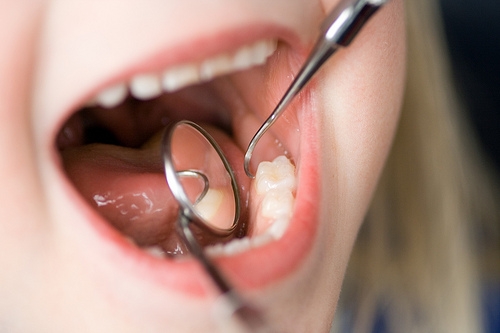What Are Dental Sealants?
December 10th, 2025

You’re constantly playing defense. Your child spends two minutes in the morning and two minutes at night carefully brushing and flossing with a fluoride toothpaste. You make sure sugary and acidic foods are not a major part of your diets. Your child visits our Spartanburg, SC office for regular exams and cleanings. Really, how can a cavity get past all that?
But even with the best defensive practices, you don’t have a level playing field—literally. The tops of our molars and premolars don’t have the smooth, easy-to-clean surfaces that our other teeth have. If you look at the chewing surfaces, you will notice deep grooves which toothbrush bristles have a much harder time reaching.
Plaque and food particles can become trapped in these grooves (known as pits and fissures), providing perfect conditions for a cavity to develop. That is why cavities are so common in newly erupted molars. Dental sealants protect these teeth from cavities by providing a barrier which smooths out the surface of the tooth and prevents food and bacteria from reaching the molar’s crevices.
Most sealants are invisible plastic resin coatings which we apply in our Spartanburg, SC office. Usually the procedure is so quick and easy that no dental anesthetic is required. Each tooth will be examined first. If we find any signs of early decay, we will gently treat that area before beginning.
When the tooth is ready, it will be cleaned and dried. An etching solution will be brushed on to the dry surface to roughen the area a bit so that the sealant will hold to the tooth more effectively. A thin coat of the sealant is then painted on and hardened under a curing light. And that’s it!
Once teeth are sealed, they should be cleaned and flossed just as carefully as before. Regular exams and cleanings are still very important, and we can monitor the condition of the sealant and the sealed teeth. Properly applied, sealants can last from three to five years, or even longer.
Who should consider sealants? Sealants are typically recommended when the permanent molars first erupt. Children’s enamel takes a while to become its strongest, and so these just-erupted teeth are more at risk for cavities. Sometimes Dr. HJ Turner and Dr. DJ Turner will recommend sealants for primary (baby) teeth if needed. But even adults can benefit—talk to us if you are interested and we will let you know if sealants might be right for you.
Sealants are a simple, safe, and minimally invasive way to prevent cavities. Studies of sealed molars and premolars show a dramatic reduction in cavities compared to untreated teeth. Sealants are one of the most effective ways to defend your teeth or your children’s teeth from tooth decay. And as we’ve all heard—defense wins championships!










 Website Powered by Sesame 24-7™
Website Powered by Sesame 24-7™
